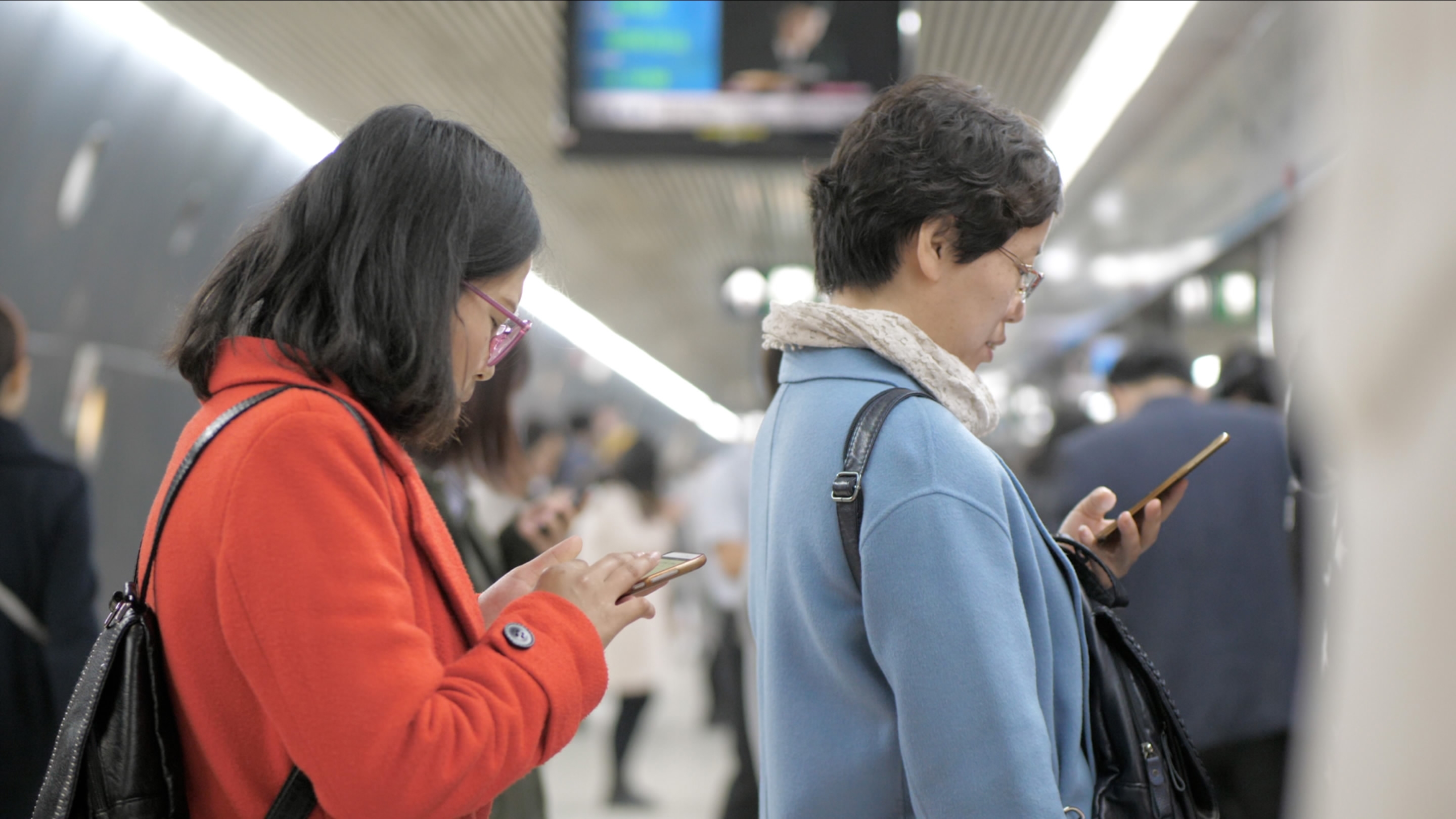
China
19:17, 15-Mar-2018
Two Sessions: Internet for all in mobile-addicted China?
By Sim Sim Wissgott and Zhang Dayu

On the subway, in cafes and restaurants or just walking down the street: Chinese people can often be seen glued to their mobile phones, messaging on WeChat, watching videos or checking the latest news and gossip on a multitude of apps.

CGTN Photo
CGTN Photo
Which explains the lengthy murmur that coursed through the otherwise quiet crowd of deputies at the opening of the National People’s Congress last week, when Premier Li Keqiang announced that mobile Internet rates would be cut by at least 30 percent this year and domestic data roaming charges – imposed when traveling to another province – would be scrapped entirely.
Not only that: Jiguang, an independent data analysis company, found that Chinese mobile phone users spend an average 4.2 hours every day using apps, and each mobile phone has about 40 apps.

CGTN Photo
CGTN Photo
This is not surprising given the scale and popularity of e-commerce and e-services in China. Where Western consumers often still book taxis or theater tickets by phone and purchase goods from physical shops, Chinese consumers prefer to do everything online.
Taxis are hailed via the Didi app, food deliveries are ordered on Meituan or Ele.me, payments in cafes and restaurants can be made by mobile, and splitting a bill with friends is much more convenient with WeChat Pay or Alipay than with cash.

Booking movie tickets on a smartphone. /CGTN Photo
Booking movie tickets on a smartphone. /CGTN Photo
Accordingly, online purchases via mobile phones and use of entertainment apps have all seen rapid growth over the past few years, according to the China Internet Network Information Center. In 2017 alone, they went up by 65.5 percent and 22.6 percent respectively.
In its work report last week, China’s government prided itself for establishing "the largest mobile broadband network in the world".
Still, it wants to go further. By 2020, to coincide with its centenary goal of achieving a "moderately prosperous society", all urban and rural areas should have access to broadband.
For 2018, one of the goals is to expand free Internet access in public places.
"These steps will bring tangible benefits to people and businesses, and boost the development of Digital China," Li promised.

SITEMAP
Copyright © 2018 CGTN. Beijing ICP prepared NO.16065310-3
Copyright © 2018 CGTN. Beijing ICP prepared NO.16065310-3